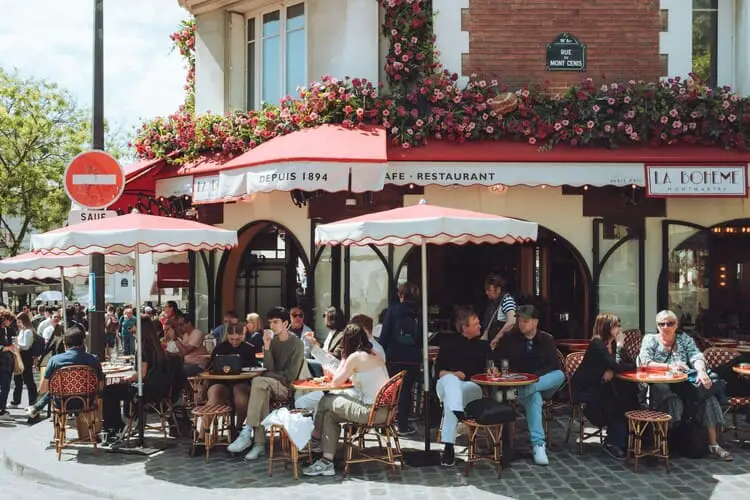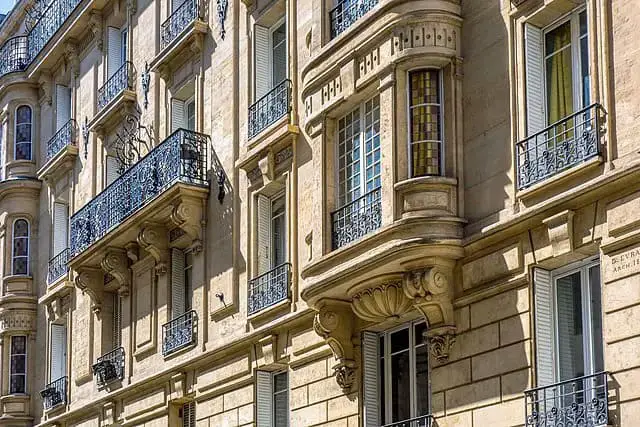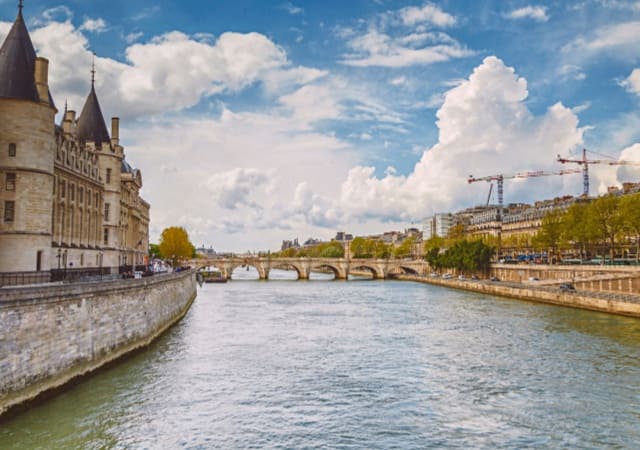Paris has once again claimed the title of the world’s leading city in Euromonitor International’s 2024 Top 100 City Destinations Index. This recognition comes from a combination of standout performances across several key areas.
Official Top 20 ranking according to Euromonitor. (top 100 at the end of the article)

1. Leadership in Tourism Infrastructure
Paris’s top ranking in tourism infrastructure stems from its robust and user-friendly facilities. The city’s extensive public transportation system—including buses, trams, and the Metro—provides seamless access to landmarks like the Eiffel Tower and the Louvre Museum. Ahead of the 2024 Summer Olympics, over €500 million was invested to expand service hours and increase frequency, ensuring the city could handle millions of visitors efficiently.
Accommodations cater to every type of traveler, from luxury hotels in Saint-Germain to budget-friendly options in the Latin Quarter. Paris’s commitment to innovation is clear in its infrastructure planning: 95% of Olympic venues utilized existing or temporary structures to minimize environmental impact.
What sets Paris apart is its thoughtful approach to visitor experiences. Improved wayfinding signage and hospitality training for locals ensure tourists feel welcome and can navigate the city with ease. These initiatives showcase Paris’s ability to balance tradition with modern convenience, cementing its position as a global leader in tourism infrastructure.

2. A Top Contender in Tourism Performance
Paris ranked third in the Tourism Performance pillar, driven by strong domestic and international demand.
In 2024, the city welcomed over 17 million inbound visitors, a testament to its enduring global appeal. Iconic landmarks like the Eiffel Tower, Notre-Dame, and the Louvre continue to attract millions, while vibrant districts such as Montmartre and Le Marais offer a uniquely Parisian experience.
The Summer Olympics further boosted Paris’s tourism performance, showcasing the city to a global audience and generating additional visitor interest. Its accessibility through major international airports, high-speed trains, and efficient public transport reinforces its position as one of the world’s most visited cities.
These elements, combined with strategic marketing campaigns and year-round appeal, have secured Paris’s place as a leader in tourism performance, making it a must-visit destination for travelers worldwide.

3. Excellence in Tourism Policy and Attractiveness
Paris ranked third in the Tourism Policy and Attractiveness pillar due to its dynamic strategies for enhancing tourism year-round.
Rather than concentrating on peak seasons, the city’s policies aim to spread visitor numbers evenly, reducing overcrowding and providing a smoother experience for tourists and locals alike.
One standout effort is Paris’s innovative approach to cultural and sporting events, such as the 2024 Summer Olympics. These events not only draw international visitors but also shine a light on the city’s vibrant arts, history, and modern amenities.
The Olympics, for instance, brought Paris into the homes of millions worldwide, boosting its allure as a travel destination.
To counter overtourism, Paris has introduced higher tourist taxes and entry fees for popular attractions. These funds are reinvested in sustainable tourism initiatives, such as creating green spaces and preserving historic sites. Paris has also championed the regulation of short-term rentals to address housing shortages and preserve neighborhood charm.
These comprehensive policies demonstrate that Paris isn’t just relying on its iconic reputation—it’s actively shaping its future as a sustainable and desirable destination.

4. Global Spotlight Through the Summer Olympics
The 2024 Summer Olympics gave Paris a unique opportunity to showcase its appeal on the world stage.
The Olympics attracted millions of visitors, boosting the local economy and showcasing the city’s rich cultural heritage. This influx of tourists led to increased spending in hotels, restaurants, and attractions, reinforcing Paris’s status as a premier global destination.
The successful execution of the Games demonstrated Paris’s capacity to host large-scale international events, further enhancing its appeal to future travelers and solidifying its position as a leading city in the world.

5. Adaptation to Responsible Tourism
Paris faces the challenges of overtourism head-on with bold, forward-thinking measures designed to create a more balanced experience for visitors and locals. For example, the city increased tourist taxes by 200%, using the revenue to fund public transportation upgrades and improve urban infrastructure.
Paris also hosted the Assises du Tourisme Durable, a summit that brought together over 150 stakeholders to develop sustainable tourism strategies. This initiative emphasized eco-friendly practices, such as encouraging off-season travel and promoting lesser-known neighborhoods like Belleville and Batignolles to alleviate congestion at major attractions.
The regulation of short-term rentals has been another key focus. With platforms like Airbnb seeing explosive growth, Paris implemented stricter controls to prevent housing shortages and community disruption. The city now enforces rental limits, higher taxes, and fines of up to €100,000 for violations, striking a balance between tourism and residents’ needs.
Green initiatives have also flourished. A €55 million project is underway to create more green spaces around Notre-Dame Cathedral, reflecting Paris’s dedication to sustainability and quality of life. These efforts collectively ensure that Paris maintains its charm and functionality for future generations of visitors.
6. Growth in Short-Term Rental Options
In 2024, Paris saw a 20% surge in short-term rental listings, driven largely by the Summer Olympics. Platforms like Airbnb doubled their offerings, with active listings in Île-de-France increasing from 58,000 in February 2023 to 134,000 in 2024.
While this growth provided tourists with diverse accommodation options, it also created challenges. Market saturation led to an average occupancy rate of only 46% during the Games. Meanwhile, locals faced increased housing shortages and disruptions in their neighborhoods.
In response, Paris authorities took decisive action. New regulations introduced in May 2024 imposed higher taxes on holiday rentals and empowered local officials to enforce stricter limits, including quotas for short-term lets.
These measures aim to curb the negative effects of rental growth while ensuring that tourism remains a positive force for the city. By prioritizing residents’ needs alongside visitor convenience, Paris continues to strike a delicate balance between welcoming travelers and preserving its unique character.
Top 100 City in the World in 2024 (Source: Euromonitor)

With a passion for travel and having visited over 50 countries, Dorian is eager to share his favorite spots and expert tips to help you explore Paris and France like a local.




